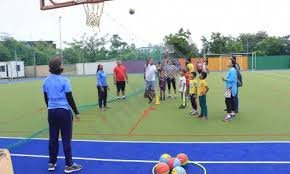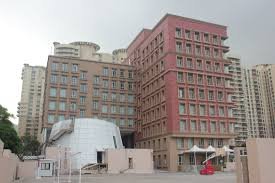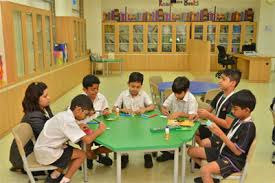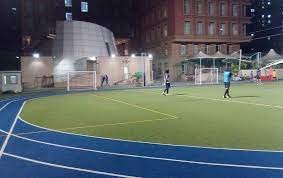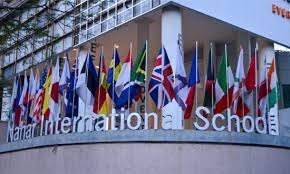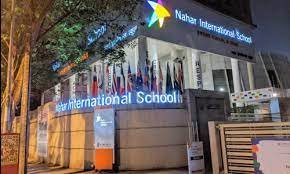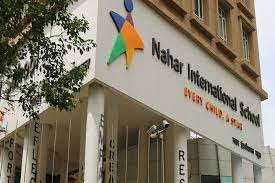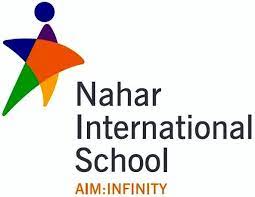
Nahar International School
Nahar International School, DP Road Number 2, GM Colony, Yadav Nagar, Chandivali, Powai, Mumbai, Maharashtra, IndiaNursery - xii
About School
Additional Details
- Minimum Entry Age :- 3
- School Provide Meals ? :- No
- Air condition Class ? :- N/A
- CCTV Surveillance ? :- Yes
- Day Boarding ? :- Yes
- Teacher Student Ratio :- N/A
- Total Seats at Entry Level Grade :- 65
- Total School Strength :- 4000
- Average No of students per class :- 65
- Total No. of Teachers (All Class) :- 70
Infrastructure
- Fire Safety :- Yes
- School has Strong Room ? :- Yes
- School has Wifi Enabled ? :- N/A
- Total No. of Playground ? :- 2
- Total No. of Rooms ? :- 65
- No. of Laboratories. :- 4
- No. of Lift elevator. :- 5
- Total No of computers. :- 120
- No. of Activity room. :- 5
- School has clinic facilities ? :- No
- School has Gymnasium ? :- No
- Total Area of School ? (Sq) :- 60500
- Total area of playground ? (sq) :- 6000
- Total No. of Library ? :- 2
- No. of Auditorium. :- 2
- No. of Digital Classroom. :- 10
- Total No. of Buses Owned. :- 15
- Transport Facility :- Yes
Fee Details
- Admission Fee :- 95000
- Annual Fee :- 450000
- Transport Fee :- 20000
- Others Fee :- 35000
Vision and Leadership
School Vision
Principal

Vandana Arora
The IBDP results have been declared worldwide and we are proud to say that the NIS batch of 2020-2022 has achieved a wonderful result considering that their two year IBDP journey was almost entirely online! Our students have performed exceptionally well in all requirements of the two-year curriculum. The following is a summary of the average grade of NIS students in comparison with world average grades. The highest grade achievable is a 7. In English, NIS students have achieved an average grade of 5.43, against a world average of 5.02. For French, students have scored a huge difference of average grade of 5.57, as compared to the world average of 5.12. Spanish students have achieved a similar massive difference of average grade 5.67 against a world average of 5.02. Hindi averaged at a high of 6.00 versus a world average of 5.80. Economics students have achieved a high score of 5.67 against a world average grade of 5.39, whereas Business Management students have dazzled at 7.00, much higher than the world average of 5.10. ESS (Environmental Systems and Societies) students scored a high average of 5.29 as against a world average of 4.46. Global Politics, a rarely attempted subject, has scored a stellar average grade of 5.50, against world average of 5.08. Coming to the sciences, for Biology, the NIS student average grade is 5.00, much higher than the world average of 4.56. Chemistry is considerably higher than the world average, NIS - 5.67 as against world average grade 4.98. Physics students scored a superb average of 5.50 with the world average grade being 5.09. Mathematics AA students have achieved a whopping average grade of 6.00 as opposed to a world average of 4.99. Mathematics AI, too, scored a wonderful average grade of 5.33 against a world average of 4.39. Visual Arts, a very difficult subject to achieve high grades at, has scored a much higher average 5.00 against a world average of 4.44. We are immensely proud that this grade reflects our students’ entire two-year journey, and the hard work they have put in over the DP years, compounded by the difficulties of the online platform of learning. The batch of 2020-2022 students began studying in the physical campus, only by mid January 2022. Despite their mainly online learning, their final assessments took place in the physical space, in an environment the students had had very little time to readjust to. Nevertheless, their results speak about their resilience. Our students’ grades are reflective of the IB ideals of continuous learning and consistent effort. An IB education has always been about more than the results. Finnish educationist and Director General at the International Baccalaureate, Olli-Pekka Hainonen, recently referred to ‘the global challenges we are being increasingly faced with’ and how these are ‘not technical or technological problems, they are adaptive problems. These problems relate to our intrinsic human nature, to our way of seeing the world and our ability to connect with the world and that means that they cannot be tackled from the outside. But the only way to tackle them is to focus on human growth and development, and prepare mental maps to help us to grow to a higher level.’ This is what an IB education aims to prepare students for - to apply, to adapt, to evolve. Every IBDP student undergoes a gamut of experiences, many unfamiliar and some overwhelming. The journey however, helps students realise real-world challenges that come their way as they work independently and own their learning, making them resilient and adaptive. And that is an IB student's true success - that they have discovered something about themselves - their ability to be better critical thinkers, to ask better questions of themselves and the world, to apply their thinking and skills in a multiplicity of ways, and, in so doing, become better learners for life. We are confident that our students will be able to apply the intense and rigorous learning of the past two years well into their college and adult lives, to good effect. We congratulate our entire batch of 2020-2022 for their accomplishment, and wish them success in their chosen futures.


